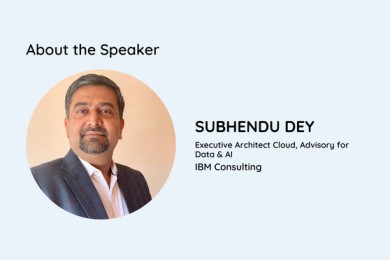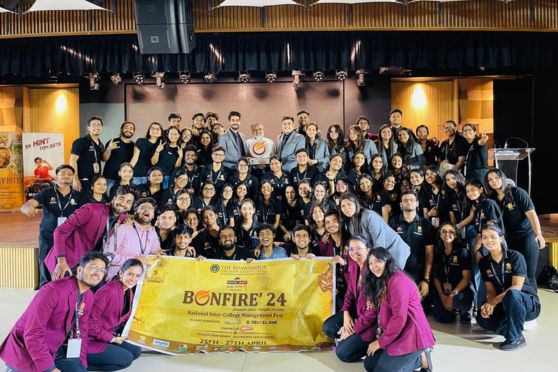Artificial Intelligence and Machine Learning as disciplines have taken the world by storm, particularly in the 21st century. While many youngsters have drawn inspiration from some of the best science fiction featuring AI and robots, the actual world of AI and ML has been growing by leaps and bounds. But what does the world of AI and ML have to offer? How can you transition from campus to career with AL & ML? And how can you be an expert in AI & ML? To answer these and many other questions, The Telegraph Online Edugraph organised a webinar with Subhendu Dey, a Cloud Architect and advisor on Data and AI.
The webinar saw participants from class 8 right up to those in advanced degrees, as well as teachers. Hence, the subject matter of the webinar contained takeaways that would be relevant at all stages. Mr Dey also highlighted that he would be focusing on showing how things that have always existed around us contribute to AI - giving students a more intuitive idea of AI and making it more interesting.
The webinar started by taking a look at a simple action like sending a text. People would find that their mobiles would keep suggesting words to them. Be it as soon as they have typed a few letters or after they have typed a few words, they would get suggestions that are surprisingly accurate. This is called Language Modelling and requires an intuitive understanding of language. A human may be able to do it from his or her extensive knowledge of words and language, but in this case, it is a fine demonstration of the intuitiveness of AI.
Let’s look at another aspect of AI - when we key in a question into the Google search bar, a decade or so ago, Google would have analysed the keywords and thrown up a list of links that feature the keywords. But fast-forward to this decade and Natural Language search is today capable of not just reading the keywords but also finding out the intent behind the query. This means that Google will, in addition to giving you the links, also give you the answer, as well as other questions that have the same or related intent. In fact, Google also has a system for taking feedback, which facilitates the Google AI to learn to be even more intuitive and better at giving suggestions.

The webinar was conducted by Subhendu Dey Edugraph
One need only look at the digital assistant - Siri, Google Assistant or Alexa - to understand the advancements in AI. From understanding spoken queries to giving intuitive, and often very witty, answers, these assistants communicate in a surprisingly human-like manner. Of course, there is a cycle of tasks that they must perform behind the scenes, which Mr Dey spoke about in detail.
While these changes that we can observe are new, AI has been around for a long time now. One of the earliest feats was in 1997, when the IBM Supercomputer Deep Blue beat world chess champion Gary Kasparov, in a six-match tournament.
Today artificial intelligence is a booming area of development and the Ministry of Electronics & Information Technology projects the addition of about 20 million jobs in the sector by 2025. In fact, this is also underscored by multiple studies and reports prepared by global auditing firms like Deloitte, NASSCOM and PwC.
However, one question that has always baffled scientists and engineers working in the domain of AI, is striking a balance between behaviour and reasoning on the one hand and human/irrational and rational on the other, when designing the various Artificial Intelligence agents. It has, however, been found that more intuitive AI agents with better user experience interfaces have a higher penetration in human society.
Next we take a look at Machine Learning. When an AI agent learns on its own from the interactions it has, this is known as Machine Learning. When humans learn something, it registers in some form in the mind. However, machines perceive data in the form of functions and variables. With Machine Learning, AI agents create models which exist as executable software components made up of a sequence of mathematical variables and functions. Hence, becoming an expert in AI and ML usually requires a person to have a sound understanding of mathematics and statistics.
Let’s take a look at each of these.
As a Scientist
Choosing a major which covers these aspects should arm you with the knowledge and skills you need to become a scientist in AI.
As an Engineer
As a contributor
Mr Dey discusses all these avenues at length in the course of the webinar with examples. At the same time, he lays out the basic qualities that one must have - irrespective of which role one chooses to pursue. And these are creative vision, innate curiosity and perseverance.
To learn the answer to these and many more questions, watch our video recording of the live webinar.
A career in AI and ML is an excellent choice now - and this small initiative of The Telegraph Edugraph was aimed at providing the right guidance for you to make the transition from Campus to Career. Best of luck!










